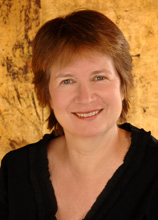Professor Denise Fort Co-Authors National Water Reuse Report
January 23, 2012

Professor Denise Fort provided the legal voice to a recently released National Research Council book that focuses on water reuse by cities. She was one of 15 authors of Water Reuse: Potential for Expanding the Nation’s Water Supply Through Reuse of Municipal Wastewater, a publication that examines a wide range of reuse applications, including drinking water, non-potable urban and industrial uses, irrigation, groundwater recharge and ecological enhancement. The committee spent two years researching the issue before releasing its report in early January.
The authors, each of whom contributed a different expertise, found that many communities have already implemented well-established water reuse projects, such as irrigating golf courses and parks or providing industrial cooling water in locations near wastewater reclamation plants. Nonetheless, potable water reuse projects account for only a small fraction of the volume of water currently being reused. Although many drinking water treatment plants draw water from a source that contains wastewater discharged by a community located upstream, this practice is not regulated with the same stringency as deliberate reuse of wastewater.
“It was a great opportunity to work with interesting and qualified experts from so many different areas of science. This is a reminder that, whether we recharge wastewater into the ground or release it to rivers, we need to pay attention to water quality,” said Fort. “I truly admire the process and results that the NRC employs; the people involved had no stake in the outcome. This is the kind of research that should be done on many areas of water management.”
The National Academy of Sciences, National Academy of Engineering, Institute of Medicine and National Research Council make up the National Academies. They are independent, nonprofit institutions that provide science, technology and health policy advice under an 1863 congressional charter. Panel members, who serve pro bono as volunteers, are chosen by the Academies for each study based on their expertise and experience and must satisfy the Academies' conflict-of-interest standards. The resulting consensus reports undergo external peer review before completion.
